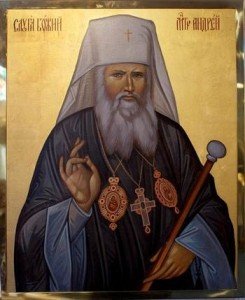In the last issue of this article, I pointed out that St. John Paul II wrote two documents that have had a very explicit impact on our Ukrainian Greek-Catholic Church (UGCC) and all Eastern Catholic Churches. These two documents, in the context of encouraging real ecumenical dialogue between the Catholic and Orthodox Churches, elaborated John Paul’s succinct statement of 1985 when he said that the Church needs to learn to breathe again with its two lungs – its Eastern one and its Western one. More significantly, John Paul exhorted the Eastern Catholic Churches to return to their roots.
In the light of the Union of Brest-Litovsk, this can only mean that the UGCC must recapture its entire Christian life of prayer, as it is found in the Patristic roots of Eastern Christianity. Yet, while the Second Vatican Council and the writings of Pope John Paul II provide a unique opportunity to all Eastern Catholic Churches, the lengthy absence of any work free of a heavy Latin Catholic scholastic influence has made it difficult to return fully to Eastern Christian spiritual and liturgical practice, and even more difficult to begin the difficult work of a Patristic-based moral theology specific to the UGCC. Difficult though the task be, however, it has begun, and the current hierarchy of the UGCC is both defending the need for and developing the scope of an authentically Eastern Christian moral and spiritual theology. Much remains to be done to make it fully authentic. The UGCC promulgated recently the first ever catechism of moral theology based upon Eastern Christian Patristic tradition. It assumes that there is no distinction between spiritual, liturgical and theological life in the Eastern Christian tradition, an assumption that needs little proof, so evident is its truth in every aspect of the ecclesiological life of the Eastern Christian Churches. As such, it does not attempt to establish the link between the spirituality, liturgy and theology in the life of Eastern Christianity, which was assured to the UGCC by the Union of Brest-Litovsk, nor does it attempt, on the basis of such an assumption, to set out a fully developed and authentically Eastern Christian moral theology for the UGCC. Rather, while advocating the need for such a moral theology, it considers an aspect of the work of the only Ukrainian Catholic hierarch since the Union of Brest-Litovsk to attempt to develop an Eastern Christian moral theology for his Church: Metropolitan Andrei Sheptyts’kyi.

